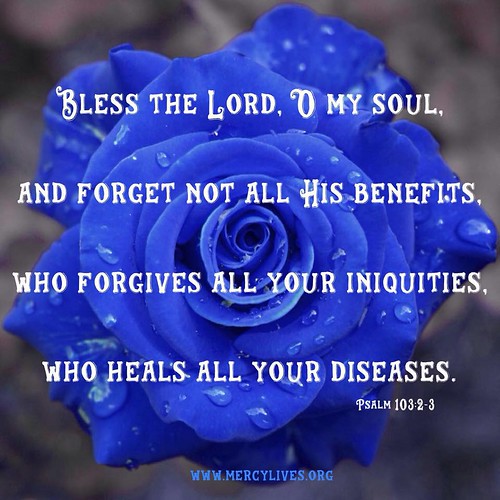THE SEED
”Who forgives all your iniquities, Who heals all your diseases,“ Psalms 103:3
Forgiveness is not only about God or the other person; it’s about our healing and being in good health. Sickness can be a byproduct of not receiving or giving forgiveness and that forgiveness brings healing to our hearts, minds, and relationships. You can become ill or your body open to attack from disease if you have not asked for the forgiveness of your wrongdoing from God or if you as a person have not forgiven others of their wrongdoing to you. The Lord has the ultimate power and authority over all sicknesses and diseases that might want to take root in our lives and it doesn’t take Him a day to banish them from our lives and heal us instantly, but in this healing process, we also have a role. Our role is to make sure that we are not harbouring anything that can give sickness or diseases a foothold in our lives, such as dwelling in sins or wrongdoings without asking for forgiveness from God or the people we have wronged and also refusing to forgive people who have done evil against us. These instances would create enough space for sickness to have a hold on us. The words of our Lord Jesus to the man at the pool of Bethsaida are an echo of this instance. After the Lord healed him and met him again in the temple, Jesus told him; ”…, See, you have been made well. Sin no more, lest a worse thing come upon you.”
BIBLE READINGS: John 5:5-14
PRAYER: Lord, I confess all my sins to you and I release forgiveness from my heart to everyone that wronged me.
IWOSAN NIPA IDARIJI
IRUGBIN NAA
“ẹni tí ó dárí gbogbo ẹ̀ṣẹ̀ rẹ jì,tí ó sì wo gbogbo àrùn rẹ sàn.” Orin Dafidi 103:3
Idariji kii ṣe nipa Ọlọrun nikan tabi eniyan miiran; o jẹ nipa iwosan wa ati pe wiwa ni ilera to dara. Àìsàn lè je àbájáde àidarijini tàbí airi ìdáríjì gba. Idariji a maa mu ìmúláradá wá sí ọkàn àti awon ìbasepo wa. O tumọ si pe o le ṣaisan tabi ara rẹ le ko arun ti iwo ko ba beere fun idariji ẹṣẹ rẹ lati ọdọ Ọlọrun tabi ti iwọ ko ba dariji awọn elomiran. Oluwa ni agbara ati aṣẹ ti o ga julọ lori gbogbo awọn aisan ati arun ti o le fẹ lati ta gbongbo ninu igbesi aye wa ati pe ko gba a ni ọjọ kan lati yọ wọn kuro ninu igbesi aye wa ati mu wa larada lesekese, ṣugbọn ninu ilana imularada yii, awa naa ni ipa Lati ko. Ojuse wa ni lati rii daju pe a ko gba ohunkohun ti o le mu aisan tabi arun ni ipilẹ ninu igbesi aye wa, gẹgẹbi gbigbe ninu ẹṣẹ tabi awọn asise lai bebe fun idariji lati ọdọ Ọlọrun tabi awọn eniyan ti a ti ṣe ti a si ko Lati dariji awon ti o se wa. Awọn iṣẹlẹ wọnyi yoo ṣẹda aaye fun aisan lati nipa Lori aye wa. Àwọn ọ̀rọ̀ Jésù Olúwa wa sí ọkùnrin tó wà ní adágún omi Bẹtisáídà je ìró àpẹẹrẹ yìí. Lẹhin ti Oluwa mu u larada ti o si tun pade rẹ ni tẹmpili, Jesu wi fun u; ”, Wò ó, a ti mú ọ lára dá. Máṣe dẹṣẹ mo, ki ohun ti o buru ju eyi ki o má ba wá sori rẹ.”
BIBELI KIKA: Jòhánù 5:5-14
ADURA: Oluwa, mo jewo gbogbo ese mi fun o, mo si tu idariji sile lati okan mi fun enikeni ti o se mi.
